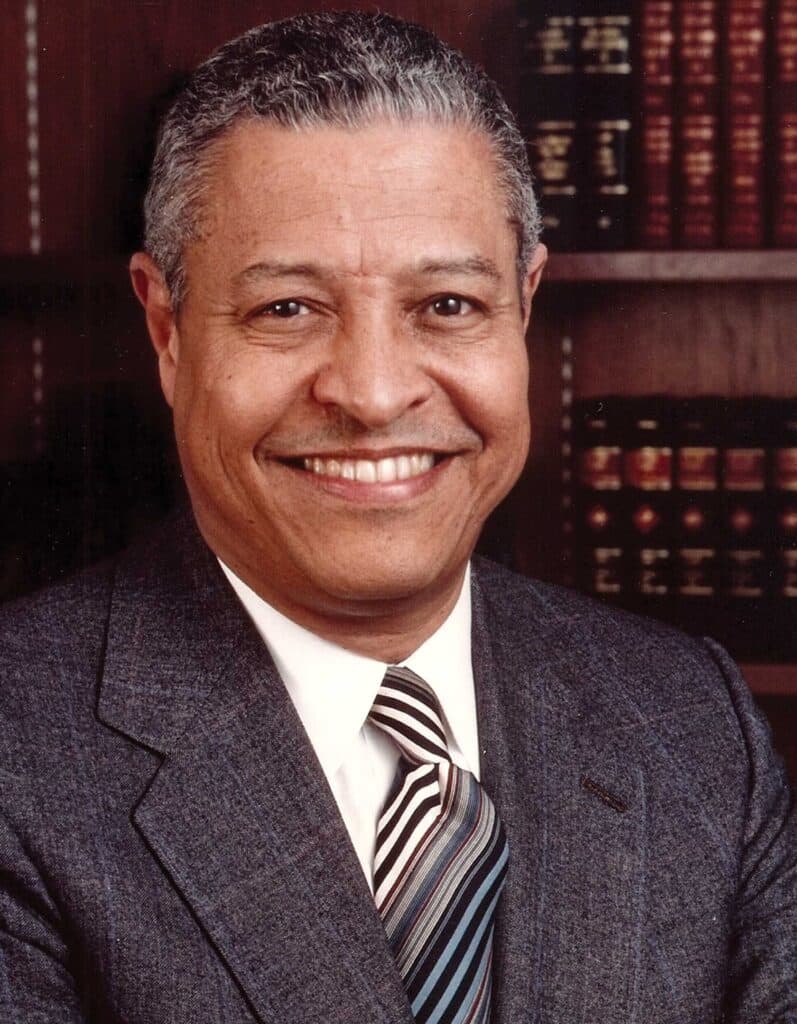
Dr. Clifford Reginald Wharton Jr., an African American pioneer in foreign economic development, higher education, business, and philanthropy, passed away from cancer on Nov. 16 in New York City.
The oldest of four children, he was born in Boston on Sept. 13, 1926.
His father, Clifton R. Wharton Sr., was the first African American to be named career ambassador of the U.S. Foreign Service, where he served for more than 40 years. His mother, Harriette Mae (Banks) Wharton, had a master’s degree in social work and taught at Virginia Normal and Industrial Institute, now Virginia State University.
As Wharton wrote in “Privilege and Prejudice: The Life of a Black Pioneer,” his 2015 memoir, “I had the priceless example of two rigorously educated, high-achieving parents before me.”
Wharton graduated from Boston Latin School at 16 and attended Harvard College, where he met his future wife, Dolores Duncan, and was awarded a bachelor’s degree in history in 1947.
His studies at Harvard were briefly interrupted in 1945 when he joined the Army Air Corps as a pilot at the Tuskegee Institute in Alabama; however, he didn’t see combat.
Wharton then earned a master’s degree in international affairs from Johns Hopkins University School of Advanced International Studies in 1948, the first African American to do so. But he didn’t stop there.
He earned another master’s degree in 1956 and a doctorate in 1958, both in economics, from the University of Chicago — an African American first — and he was awarded 62 honorary doctorates.
Determined to improve the lives of people in emerging economies, Wharton’s research centered upon agricultural economics, which, beginning in 1958, took him to Singapore, Malaysia, and other countries in Southeast Asia for long periods, mainly through the Rockefeller Foundation, of which he later became chairman and a longtime trustee.
In 1969, New York Governor Nelson Rockefeller assembled a working group of advisers on economic, social, cultural, and military affairs to gather information during his mission to Latin America for President Richard Nixon. The group included Wharton, who at the time was vice president of the Agricultural Development Council, Inc. and a specialist in agricultural modernization in developing countries.
That same year, Wharton was appointed the first African American president of a major, predominantly white university — Michigan State University. After a successful eight-year tenure at MSU, he became chancellor of the State University of New York (SUNY) from 1978 to 1987. There, he led the largest university system in the country, comprising 64 campuses with an enrollment of 370,000 students and an annual budget of more than $2.5 billion.
Wharton noted in a July 1982 memorandum to the presidents of those 64 colleges that make up SUNY that he believed “public colleges were created by the state to provide higher education opportunities accessible to a broad range of students, from the less gifted to the exceptional.”
Wharton left SUNY in February 1987 to become chairman and CEO of TIAA-CREF, a financial services provider and manager of the country’s largest pension fund with assets of over $350 billion, making him the first African American CEO of a Fortune 500 company.
Shortly after becoming chairman of TIAA-CREF, Wharton suggested reforming the pension fund. “I personally believe that a considerable expansion of freedom of individual choice is both inevitable and right. What we are seeing, after all, is a sort of democratization of long-term investment,” he said.
Highly sought after as a corporate director, Wharton’s former corporate directorships include the New York Stock Exchange, Time Warner, Ford Motor Co., Equitable Life, Tenneco and Federated Department Stores, among others.
Wharton served under five presidential administrations in formal and informal capacities. In January 1993, for example, he became deputy secretary of state to Warren M. Christopher under President Bill Clinton and the highest-ranking African American in State Department history until Colin Powell was appointed secretary of state in 2001.
Boston Latin School honored Wharton in 2017 by placing his name on the lower frieze of the Assembly Hall alongside such distinguished alumni as John Hancock, Benjamin Franklin, Samuel Adams, Ralph Waldo Emerson, and Leonard Bernstein. He called it “the highest honor of my life.”
He is survived by his wife of 74 years, Dolores; and son Bruce.






